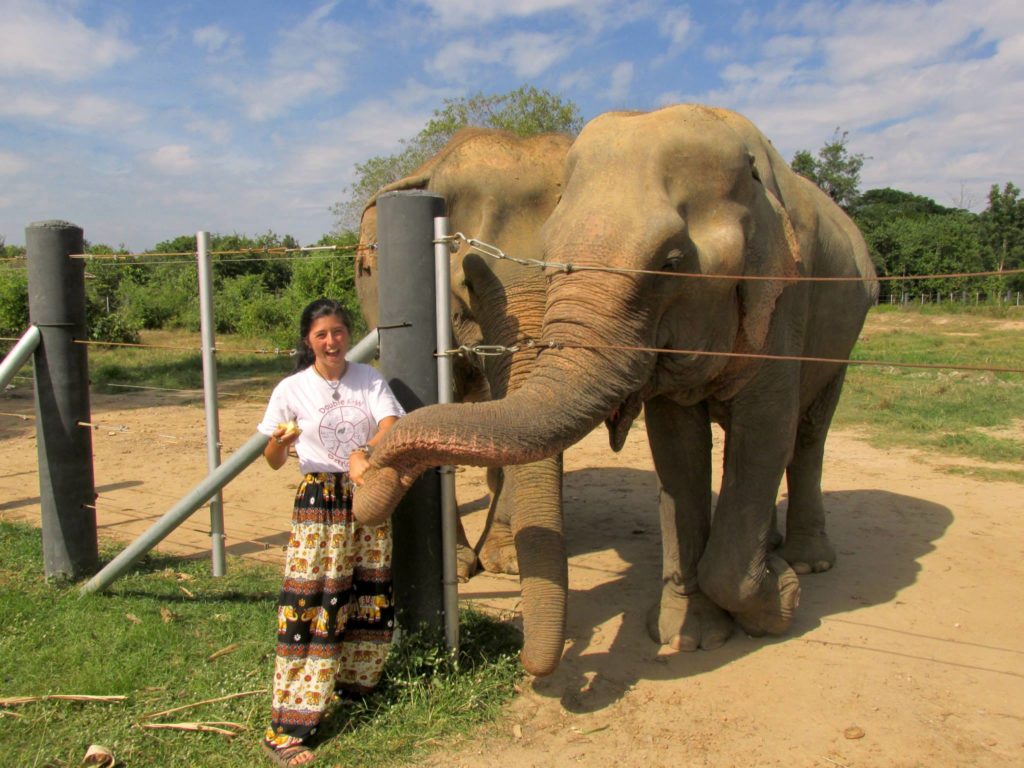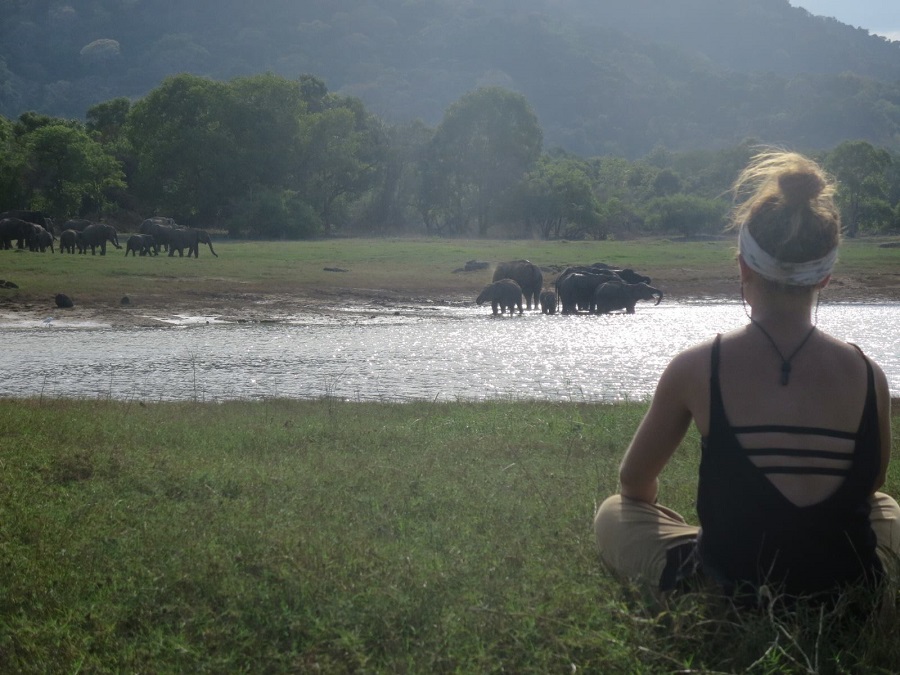From the moment we are settled on an academic track, we are constantly being asked about our career plan. “What do you want to be when you grow up?” is such a common question asked throughout childhood that it shapes the way we perceive the future. The “North American Life” plan, as directed by your parents, your teachers, and society at large, goes a little something like this:
- Step 1: Graduate high school
- Step 2: Go directly to college and get your BA and maybe a master’s ASAP
- Step 3: Get an office job immediately. Sit at desk for 45 years.
- Step 4: Retire to relax and travel
Does this sound crazy and overwhelming to you? You’re not alone. Many people never take the time to question this so called “Life Plan” because it such an inherent and societal part of our upbringing and national psyche. However, there is a growing number of young people & millennials searching for an alternative, tired of this traditional, corporate-lifestyle focused path.
One option to breaking this cycle is to take a gap year. It has long been typical in the UK for students to take a year off between high school graduation and college, and the trend is beginning to catch on in the US and Canada as well. For those of you that do pursue gap year options, it’s not always an easy course. You’re often met with skepticism, judgement and comments like “You’re not thinking about your future.” or “You’ll set your career behind by years!” But keep going, keep pushing.
Be like Malia: take a gap year!

What is a gap year?
A gap year is defined as “a period, typically an academic year, taken by a student as a break between secondary (high) school and higher (university) education.”
It offers students the chance to learn about life outside of the classroom through experiential learning. You spend 13 years in school and at least 4 in college, so a gap year gives you a moment to step off the conveyor belt and pick up some real-world experience to put all of that education in context.
When can I take a gap year?
Anytime! It can be a few months over the summer to a full year off. The traditional gap year is taken between high school and college for at least 1 semester, but any transitional period in your education or career path could be considered a gap year. Take a few of these examples:
- Graduating high school and not ready for college yet? Gap year.
- Finished your associate’s and about to transfer to a 4-year college? Gap year.
- Got your BA and not quite ready to jump into a cubicle or start your master’s program ? Gap year.
- Done with your MA and looking for a mental break before working? Gap year.
- Switching careers and got a few months to kill before the next one starts? Gap year.

What do I do on a gap year?
Anything that helps you learn more about yourself and your interests! That’s the beauty of gap years — it’s totally up to you! You are in complete control of your schedule, in a way that is never quite possible when you’re in school or working in an office environment. You get to decide how long to go for, how you define your schedule, and where in the world you go.
Regardless of what place you’re at in your life, gap years are a great opportunity to reflect, learn and explore the world around you.
In order to reassure and placate your family and friends, having a rough plan or structure to your gap year is generally a good idea. It goes a long way in convincing people of the seriousness of your decision and will help them to respect your choice. Here’s a number of options you might want to think about:
- Volunteer with organizations that you’re interested in that relate to your field of study
- Intern or job shadow in an industry that you’re considering studying or transferring to in the future
- Learn a foreign language
- Engage in intentional “slow travel” and cultural immersion experiences to reflect on your career goals
- Live with a host family abroad to get a cross-cultural experience
While gap years can take many forms, most people spend at least a portion of their time outside of their home country. You’ll have the opportunity to learn about the world and about your place in it, while picking up skills and experiences for your resume.

Why should I take a gap year?
Because it’s never too late to take some time for yourself!
Taking a gap year isn’t about escaping the responsibilities of adulthood. It’s about investing in yourself, pushing beyond your comfort zone, learning a new language, experiencing life outside of your home country and figuring out how to navigate new situations. These skills are all a critical part of personal growth. In today’s global community, this experience could be the best education you receive to help you land your dream job.
“I had been working in an office environment for a few months but, as many 22 year old college grads discover, it was pretty boring. I wasn’t ready start “climbing the corporate ladder.” What I really wanted to do was travel. Specifically, I wanted to live in a big city in Latin America, so I decided on Buenos Aires. When I look back on the whole teach & work abroad experience and think about how it helped me get to where I am now, the key is that I have a story to tell. A lot of people can talk about what they do, but far fewer people are able to form a compelling story around why they do it. Teaching abroad wasn’t the “safe” thing for me to do, but it helped me grow and differentiate myself in ways that more traditional career choices can’t match.” — Brian Thacker, TEFL Certification Alumni

How do I go on a gap year abroad?
For high school graduates or mid-college gap years:
There are so many opportunities to customize a gap year experience that fits your academic and career goals. Here are a few ideas on how you can build a gap year itinerary that you can show off on any resume.
- Make a meaningful impact on yourself and communities abroad by volunteering abroad to get first-hand experience helping with non-profit environmental projects.
- Spend up to a year working and traveling in Australia or New Zealand to earn money to travel and reflect on your future goals while gaining international work experience. Not to mention your resume will look a lot more interesting when you are able to apply your experience in your job application.
- Live like a local for 1-3 months as an English tutor on a Teach in a Homestay program. Not only will you have an authentic cultural experience living with a host family, you will also gain all kinds of valuable soft skills like: adapting to a new environment, language acquisition, ability to be creative, etc. while teaching English
- Intern for organizations abroad, giving you a wide range of rewarding cross-cultural experiences while building valuable professional experience.
For college grads and career gaps:
The above opportunities apply to any recent graduate or employee looking to take a career gap as well! However, having a completed degree does offer you some additional paid opportunities to help fund your travels while gaining professional work experience.
Along with the short-term programs listed above, you could apply for a job teaching English. This is an amazing way to get paid to live abroad, or at least cover living expenses, while getting out of your comfort zone and traveling. You’ll stand out on your resume, meet inspiring people from around the world and make a positive impact in your host community.

The options are limitless but one thing is certain: wherever you go or whatever you do, you should DEFINITELY take a gap year!

How do you find places to travel abroad that are trustworthy? What companies do you go through? How long does the experience typically last? What activities will I be doing? With an associates degree in applied science can I be paid to cover my expenses?
Thank you!!
Hi Brittany, these are all great questions to ask! Do you have a specific type of program or destination in mind? I can direct you to a specific program manager to answer your questions as they vary depending on where you are hoping to travel.
Hello greenheart travel, I’m really interested in your programme but I’ve got a question and sorry for asking this, I’m a muslim and is your programme can accept me to be in a part of your community? Is it a muslim friendly programme?What about food ? Hope you can reply me..Thank you so much 🙂
Hello there! Religion isn’t a restriction to be in our programs, Aiman. However, qualifications, country of citizenship and sometimes age are factors in eligibility requirements. Have a closer look at our opportunities and let us know if you have any specific questions!
I am interested in taking a spring gap semester (Between high school and college)in Spain in the firsy few months of 2019.